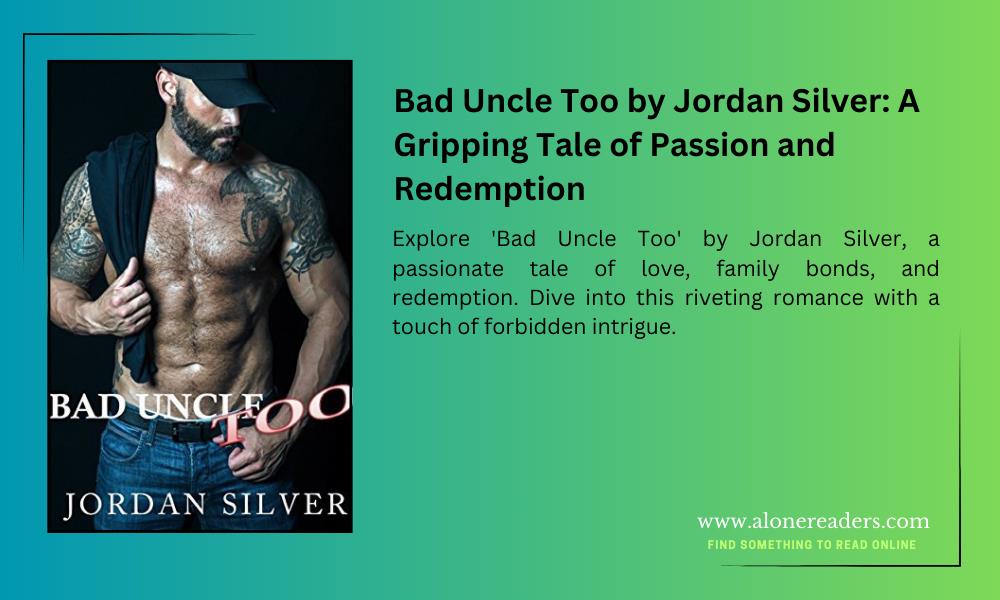
Jordan Silver’s Bad Uncle Too is a bold, captivating sequel that delves deeper into the complexities of forbidden love, redemption, and the ties that bind us. This novel is not just a continuation of the narrative established in Bad Uncle but a significant evolution of the characters and themes that made the first installment so memorable. With her signature style of blending intense romance with heartfelt emotion, Silver crafts a story that grips the reader from the very first page.
At its core, Bad Uncle Too explores themes of passion and redemption through the lens of family dynamics and love that challenges societal norms. The protagonist, a character whose journey began in the preceding novel, faces new struggles as they navigate a love that is as undeniable as it is complicated. The layers of this relationship are unraveled with care, revealing not just the fiery attraction but also the emotional scars and personal growth that come with it. Silver’s ability to make readers empathize with flawed yet compelling characters is on full display, making the journey as much about inner transformation as it is about romance.
The setting of the novel plays a significant role in creating an atmosphere of intimacy and tension. Silver’s vivid descriptions of the surroundings, from sprawling estates to quiet, secluded moments, provide the perfect backdrop for the story’s emotional highs and lows. This meticulous attention to detail enhances the reader's immersion, allowing them to feel as though they are living each scene alongside the characters.
One of the standout aspects of Bad Uncle Too is Silver’s mastery of dialogue. The exchanges between characters are charged with emotion, wit, and authenticity, adding depth to their relationships and moving the plot forward in meaningful ways. These conversations often reveal the unspoken fears and desires that drive the characters, making their choices and conflicts all the more impactful.
The romance in Bad Uncle Too is unapologetically intense, blending passion with moments of tenderness that balance the story’s dramatic elements. Silver does not shy away from exploring the complexities of love that defies conventions, challenging readers to question their own preconceptions while rooting for the characters to find happiness. The chemistry between the protagonists is palpable, their connection so vividly portrayed that it feels almost tangible. Silver’s talent for crafting steamy yet heartfelt romance is a hallmark of her work, and this novel is no exception.
While the central love story is undeniably the heart of the novel, Bad Uncle Too also delves into themes of family loyalty and personal redemption. The protagonist’s relationships with their family members are fraught with tension, misunderstandings, and moments of unexpected support. These dynamics add layers of complexity to the narrative, as the characters grapple with the consequences of their actions and strive to reconcile their love with their responsibilities.
Silver’s writing style is both engaging and accessible, making the novel a page-turner despite its emotional depth. Her ability to balance lighthearted moments with heavier themes ensures that the story remains compelling without becoming overwhelming. Readers will find themselves laughing, crying, and holding their breath as they follow the twists and turns of this unforgettable tale.
However, it is worth noting that Bad Uncle Too may not appeal to all readers. The novel’s exploration of taboo themes is handled with sensitivity, but it requires an open mind and a willingness to engage with unconventional narratives. Those who prefer more traditional romance stories may find this book challenging, though they may also discover a newfound appreciation for Silver’s ability to push boundaries while maintaining emotional resonance.